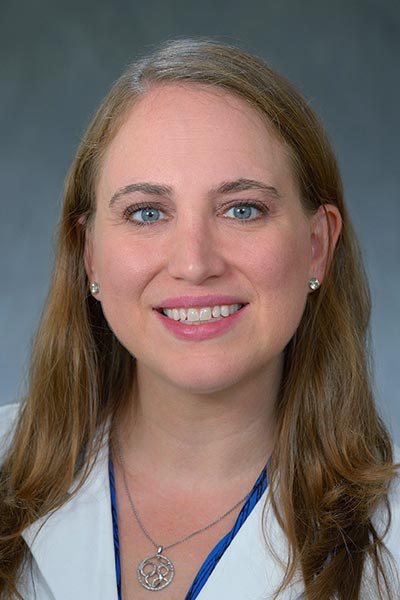2024 NextGen Stars Showcase: Kara N. Maxwell, MD, PhD
The American Association for Cancer Research Annual Meeting 2024 will mark the 10th anniversary of the AACR’s NextGen Stars Program by welcoming in a class of 10 outstanding early-career scientists. Since 2014, the program has supported the professional advancement of graduate students, postdocs, and assistant professors by providing highly visible opportunities to present scientific findings at the Annual Meeting.
Hear from one of the newest NextGen Stars in their own words, below, and click here to read Q&As with other members of the NextGen Stars Class of 2024.

Kara N. Maxwell, MD, PhD
AACR NextGen Stars Class of 2024
Assistant Professor
University of Pennsylvania, Philadelphia, Pennsylvania
Abstract Presentation:
NG02 – Distinct genomic and immunologic tumor evolution in germline TP53-driven breast cancers
Session Details:
ASD01 – Molecular Profiling in Breast Cancer and Racial/Ethnic Minorities: Dedicated to the Memory of Edith P. Mitchell
Monday, April 8, 10:15 – 11:45 a.m. PT
Room 31, Upper Level, Convention Center
What is the subject of your research?
Li-Fraumeni Syndrome (LFS) is a hereditary cancer predisposition syndrome associated with pathogenic germline TP53 alterations, and breast cancer is the most common cancer in LFS females. We performed first of its kind multimodal analysis of LFS breast cancer (LFS-BC) compared to sporadic pre-menopausal BC. Nearly all LFS-BC underwent biallelic loss of TP53 with no recurrent oncogenic variants except ERBB2 (HER2) amplification. Compared to sporadic BC, in situ and invasive LFS-BC exhibited a high burden of short amplified segments of allelic imbalance, indicating these events occur early in tumorigenesis. Pro-apoptotic p53 target genes BAX and TP53I3 were up-regulated in sporadic BC, but down-regulated in LFS-BC versus normal breast tissue. LFS-BC showed a distinct immune microenvironment composition with comparatively lower immune infiltrates than sporadic age and hormone receptor matched tumors. Our study therefore shows critical events which determine germline mutant p53 tumorigenesis and co-evolution with the immune microenvironment.
What sparked your interest in this area of research, and why is it important?
As a physician scientist, my major goal is to have my laboratory research directed by the patients I see in clinic. For the last several years, I have led a clinical practice in LFS at Penn Medicine, where I now follow over 100 carriers. This practice entails ordering cancer surveillance and guiding the carriers in their preventive and screening decision making. Although I knew it from the literature, seeing the extraordinarily high incidence of breast cancer in LFS females in clinic is very difficult. Over half of my patients have had breast cancer requiring chemotherapy and HER2-directed therapy prior to the age of 35. I have lost patients to aggressive breast cancer and to the downstream consequences of the necessary treatments, for example secondary sarcomas. This leads young women who find out they have LFS to come see me at age 18 to start screening and to be forced into difficult decisions regarding preventive bilateral mastectomy prior to having children, typically in their 20s. I am honored to serve this patient population and help them with these decisions, but I wish there was another option besides surgical prevention. I therefore am dedicated to understanding how breast cancer forms in LFS females with the hope of developing strategies for cancer interception.
What (or who) inspired you to apply for the NextGen Stars program?
I have been aware of the NextGen Stars program for many years and felt it was one of the benchmarks of an up-and-coming cancer researcher that I wanted to achieve. In addition, my cancer center director Bob Vonderheide was very supportive of my application.
What are you looking forward to as a member of the NextGen Stars?
I am looking forward to being able to present my work at the meeting and hopefully get feedback on future directions, which will help inform my R01 submission on this topic. I am looking forward to trying to get some papers out in AACR journals.
More from the AACR Annual Meeting 2025
View a photo gallery of scenes from Chicago, continue the conversation on social media using the hashtag #AACR25, and read more coverage in AACR Annual Meeting News.

